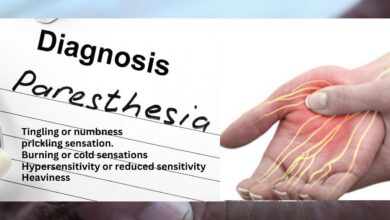
Introduction
Fasting is a practice that has been utilized for centuries across various cultures for spiritual, health, and wellness purposes. In recent years, scientific research has begun to unveil the profound effects of fasting on the human body, revealing that it is not merely an absence of food but a catalyst for a myriad of physiological processes. This article explores what happens inside your body during different stages of fasting, highlighting the remarkable adaptations and benefits that occur as your body shifts from relying on glucose to utilizing fat stores for energy. From increased growth hormone levels to enhanced immune function, the stages of fasting present unique opportunities for healing and rejuvenation.
Over here, we have the start of a fast, and we go through 24 hours, 48 hours, and 72 hours. There are a lot of really magical things that happen when you fast. Our bodies have developed over a long period and have adapted to starvation many times. So, we have all these unique proteins that get expressed or turned on that benefit your brain and various parts of your body, helping them survive better. Our bodies have not adapted to the frequency of eating like we do now, such as every three hours.
12 Hours into Fasting: Growth Hormone Spike
Around 12 hours into fasting, we get a spike in growth hormone. Growth hormone is the anti-aging hormone, the main fat-burning hormone, and it’s involved in healing joints and protein synthesis, or making new proteins. Some people take growth hormone injections to help heal certain parts of their bodies, but guess what? Fasting will trigger it automatically. So, just by fasting, you can increase growth hormone, and exercise will also increase growth hormone as well. It starts around 12 hours and increases as you continue fasting.
18 Hours into Fasting: Autophagy
At about 18 hours, you start developing something called autophagy. Autophagy is an interesting process where your body starts recycling old, damaged proteins and microbes. One type of protein would be advanced glycation end products, which occur when glucose combines with a protein, making it very sticky. If you’re on a high-carbohydrate diet, that sugar combines with your body’s proteins, causing them to degrade and become sticky, clogging things up. Your body will start cleaning all that up, turning these damaged proteins into new amino acids that your body can use. Amyloid plaques, which occur in the brain and other parts of the body, are a type of protein that can be cleaned up through autophagy. Autophagy starts around 18 hours and increases as you continue fasting.
24 Hours into Fasting: Glycogen Depletion and Ketosis
At about 24 hours, you start to deplete your glycogen reserves, the storage supply of glucose in your liver. The more the liver is depleted of glycogen, the more you’ll run on ketones as an alternative fuel. If you have a fatty liver, your body will start using that fat and turning it into ketones. This allows your body to tap into stored energy, running more on ketones, which is a superior fuel. Ketones are an appetite suppressant, so your hunger and cravings decrease. They also act as antioxidants, building up your antioxidant reserves and providing more oxygen to your body, making it more efficient. Because ketones are a more efficient fuel than glucose, your thyroid doesn’t have to work as hard. You may find that your T3 levels are a little lower, but your thyroid-stimulating hormone is normal, indicating that your thyroid is adapting to this new type of fuel.
24 Hours into Fasting: Decreased Inflammation and Gut Healing
Around 24 hours, your inflammation drops significantly. If you want to speed this up, you can add some vitamin D, which will help. Conditions involving inflammatory states like arthritis, bursitis, and autoimmune conditions start to improve around 24 hours. You also start getting more gut healing because the gut doesn’t have to work as frequently, allowing the gallbladder and pancreas to rest. If you have SIBO (Small Intestinal Bacterial Overgrowth), fasting can help correct it. You start increasing stem cells in the gut, promoting healing. The heart prefers ketones over glucose, so cardiovascular function improves, as does brain function. BDNF (Brain-Derived Neurotrophic Factor) helps make new brain cells, so your brain starts to repair at 24 hours.
48 Hours into Fasting: Stem Cell Stimulation
At 48 hours, you stimulate stem cells, which are undifferentiated cells that can turn into different tissues depending on what the body needs. This promotes healing, repair, and anti-aging. You also decrease the risk of certain types of cancer and shrink certain tumors. You start making more mitochondria.
72 Hours into Fasting: Enhanced Immune Function
If you push it to 72 hours, you get even more stem cell stimulation and better immune function. However, I recommend doing this periodically because many people have nutritional deficiencies. Jumping in too fast can cause dizziness and side effects, so it’s best to gradually increase fasting over time.
Intermittent Fasting: A Regular Routine
I recommend doing intermittent fasting regularly. A good pattern is 18 hours of fasting with a six-hour eating window. You can make it more strict over time, depending on how you do. Periodic prolonged fasting can achieve additional health benefits, whether for your immune system, skin, brain, heart, or gut function. Fasting increases your resistance to stress and can help even if you’re on chemotherapy.
Essential Nutrients During Fasting
Make sure you take your minerals during fasting. I recommend a water fast with nutrients, including minerals, B vitamins, and salt. Around 8 o’clock in the morning, you have a spike in cortisol, which can cause your body to make more glucose, leading to higher blood sugars. This is common with people who have blood sugar issues. Adding exercise in the morning can burn off some of that extra sugar.
LDL and Cholesterol During Fasting
If your LDL (low-density lipoprotein) increases during fasting, it’s because LDL delivers cholesterol to different tissues. Fasting involves a major healing process, and cholesterol is essential for cell membranes, brain function, hormone production, vitamin D synthesis, and bile production. Your body might need more cholesterol for these processes. If you’re concerned, there are tests to determine if this cholesterol is causing damage, but generally, it’s not something to worry about.
Also read:Immune Boosting Foods: Foods That Strengthen Your Immune
Conclusion
In conclusion, fasting can be a transformative practice that unlocks significant health benefits through a series of biological changes. As you progress through the various stages of fasting, your body not only enhances its ability to repair and regenerate but also promotes better metabolic function, reduces inflammation, and strengthens the immune system. While the science behind fasting continues to evolve, the evidence supporting its benefits is compelling. Whether through intermittent fasting or periodic prolonged fasts, integrating this practice into your routine can lead to improved overall health and well-being. As with any lifestyle change, it’s essential to listen to your body, consult with healthcare professionals if needed, and ensure that you maintain proper nutrition throughout your fasting journey.




